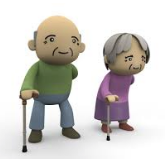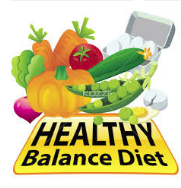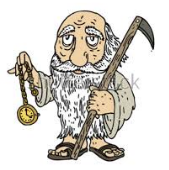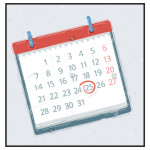
Ageing Better: Five Key Areas
Healthy ageing depends on many factors besides the fundamental ones described here: income level, heredity, lifestyle, etc. Some of these are beyond an individual’s control but others are very subjective and can be managed by anyone with the desire to do so.
There are five areas of focus which people can affect if they so choose.
- Healthy nutrition
- Physical activity
- Preventing falls
- Social Connectedness
- Tobacco/alcohol control

- Healthy Nutrition
There are doctors who promote complete abstinence or total avoidance of certain foods or certain kind of cooking. Other doctors temper the extremes by recommending moderation or limiting oneself to treats at holiday time, on vacations or at particular celebrations.One doctor sums it up this way, besides the anything and everything in moderation, “Above the ground, yes; below, no!” Sounds a bit like life itself. What he means is things that grow below ground should be avoided or eaten in real moderation. For example, carrots, potatoes, turnips and beets are root vegetables which grow below ground. They have an abundance of sugar or starch and eating them is not good nutrition. Kale, lettuce of any kind, tomatoes, cabbage, all above ground products. Eat to your heart’s delight. But there is a caveat…how you cook is as important as what you cook.Fried foods may taste good, but their impact on cardiovascular wellbeing is questionable. If you enjoy southern fried chicken, make it into a very special occasion treat. If you like frying in butter, use that style of cooking very moderately.
Eat mentally
Eat using your brain. Eat for high nutrition and low-calorie intake. With a little planning, more careful budgeting, you can eat better every day. Adults 55+ need fewer calories but more nutrients for better health and greater quality of life. Studies have corroborated that seniors who eat fruits and vegetables five times a day were more than 50% healthier than those who did not.Weight control
Obesity kills. Once again, calorie selection and regulation are essential to weight control. Calorie-rich foods are hard to resist. Don’t resist, but limit your intake to holiday occasions and very occasional treats. Though weight statistics favour men over women, both genders need to do calorie regulation and management.On the other hand, malnutrition is a problem which should not be overlooked in considering healthy eating among seniors. Seniors, particularly those who live on alone, have an inclination to skip meals, eat without planning or eat fast foods. Budget considerations notwithstanding, adults 55+ need to plan meals and eat regularly. Those who live alone need to do so with greater diligence and effort.
The optimum weight for an adult, male or female, has limited agreement. You can tell if you are overweight or underweight. You can ask your doctor if you want confirmation.

- Physical activity
Physical activity benefits a person physically, mentally and socially. This is especially true for older adults. Studies have shown that seniors who are regularly active have better memories, think more clearly and are in better physical shape. The same studies have indicated that 2/3 of seniors who exercise regularly live healthy lives as compared to only a 1/3 of those who do not do so. Despite all these positive and real benefits, seniors remain as the most inactive segment of the population.Again, budgets may impact on where seniors can engage in physical activities, but with a little thought, seniors can find places to exercise. Indoor walking in malls in the winter time; seasonally appropriate exercises such as gardening in the summer and snow shovelling in the winter. Those who may not have a pet might offer to walk a neighbour’s, thus getting exercise themselves without incurring the cost and responsibilities of pet ownership themselves.

FALLS PREVENTION
Accidents happen more often with seniors than with the younger population. A person’s strength, reflexes, flexibility and balance deteriorate with age. These lead to more injuries among seniors due to falls. Falls which may not result in serious injury may impact on an individual in other ways. They lose confidence in walking. They fear going out on their own. There is an increase in the fear that they may not be able to get help when they need it because they live independently. Activities and exercise are decreased with the increase of such anxieties, thereby compounding all the associated problems even more.
Women are at even greater risks as bone density decreases after menopause and osteoporosis increases. Older adult women typically sustain more injurious falls and have higher incidents of fall-related hospitalizations.
Fall-related injuries in Canada among those 65 and older have been estimated to cost the economy nearly $3 billion annually. Rehabilitation and recovery periods take longer and are more difficult for older adults who have experienced an injurious fall — up to twice as long for falls when compared to all other causes of hospitalization for older adults. This results in a high resource burden on the health care system. The human and business case for falls prevention is clear.
Take precautions to avoid falls. Walk more slowly paying closer attention to the surface on which you are walking. Use hand railings on stairs, both in ascending and descending. Wear proper and appropriate footwear. Shoes with rubber soles in summer, winter boots with lugs or tread specially designed for winter wear. Use a cane if it helps give you more security and confidence. Walk with a companion. However, do continue walking as it is a low impact exercise with many cardiovascular and physical benefits. Pass on elevators and escalators if you are ascending just a few floors in a building. The stairs will benefit you more, just climb them at a reasonable pace. It’s not a matter of finishing first. It’s a matter of finishing.

- Tobacco/alcohol control
Uncontrolled use of tobacco and alcohol detrimental to the health at any age. Tobacco’s impact on health is no longer questioned. Smoking is an addicted habit. If quitting is an insurmountable problem, enlist the help of the family doctor or talk to the pharmacist. There are numerous products on the market, at your pharmacy, to help you stop smoking. Explore the availability of support groups similar to Alcoholics Anonymous which can give those trying to quit smoking emotional and social support. Contact your community’s social services department. Find assistance or support online. Most importantly, recognize it is a serious and challenging addiction and look at your struggle with it as a one day at a time battle.Moderate use of alcohol seems to have benefits. Reduction of stress and anxiety, increased relaxation and comfort, even cardio benefits. However, the key is moderation. A glass of red wine with dinner daily has health benefits. However, when consumption increases beyond the one glass portion, one must review and re-assess the consumption. Excessive use of alcohol causes many health problems from liver damage to weight increase. Consult with your family doctor about your daily/weekly alcohol consumption and adjust your intake accordingly. Again, if alcohol is a problem in your life, there are numerous support groups who can assist you in changing your alcoholic intake.

Aging is an ongoing engagement between you and Father Time
Aging is an issue for everyone. It can become a serious problem if one pays little attention to it but with consideration of everything you do, every day, you can age well and age normally. You gain if you apply yourself to your ageing process.
Go well and go better. You cannot change your genes but you can don a pair and go for a healthy walk every day. Your destination: an older but better you!





